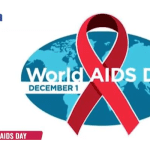Smokers living with HIV who consistently take antiretroviral medications may be far more likely to die of lung cancer than of AIDS, a U.S. study suggests.
Roughly 60,000 of the 644,200 adults aged 20 to 64 currently in treatment for HIV in the U.S. will die of lung cancer by age 80 if current smoking habits don’t change, researchers estimate.
“Today, the number one killer of people with HIV on treatment in the U.S. is not the virus, it’s smoking,” said lead study author Dr. Krishna Reddy of Massachusetts General Hospital and Harvard Medical School in Boston.
“The widespread use of antiviral medicines today is enabling people with HIV to live longer, but they are now dying from cancer at rates often higher than those among the general population,” Reddy said by email. “Lung cancer is chief among these cancers.”
More than 40 percent of people living with HIV in the U.S. smoke cigarettes, more than double the prevalence in the general population, researchers note in JAMA Internal Medicine.
Among men who smoked and continued to do so, researchers estimated that 29 percent of the heavy smokers would die of lung cancer by age 80, as would 23 percent of moderate smokers and 19 percent of light smokers. For women who smoked and continued to do so, researchers estimated that 29 percent of heavy smokers would die of lung cancer by age 80, as would 21 percent of moderate smokers and 17 percent of light smokers. Men and women with HIV who quit smoking would see their risk of dying from lung cancer go down dramatically, however.
For women who smoked and continued to do so, researchers estimated that 29 percent of heavy smokers would die of lung cancer by age 80, as would 21 percent of moderate smokers and 17 percent of light smokers. Men and women with HIV who quit smoking would see their risk of dying from lung cancer go down dramatically, however.
The study wasn’t a controlled experiment designed to prove how smoking influences mortality in people living with HIV, the authors note.
People with HIV may have worse survival odds with lung cancer because they’re diagnosed when tumors are more advanced or because their immune systems are less able to tolerate cancer treatments, said Dr. Ronald Mitsuyasu of the David Geffen School of Medicine at the University of California, Los Angeles.
“This may also be due in part or primarily to higher tobacco use, and should strongly support quitting,” Mitsuyasu, who wasn’t involved in the study, said by email.
With effective treatment, people living with HIV have a similar life expectancy to people not infected with the virus, said Dr. Anthony Olszanski of Fox Chase Cancer Center in Philadelphia.
“It is important for them now to take charge of their other health-related risks,” Olszanski added. “Quitting smoking is likely to drastically decrease their risk of developing lung cancer as well as other smoking-related illnesses.”













